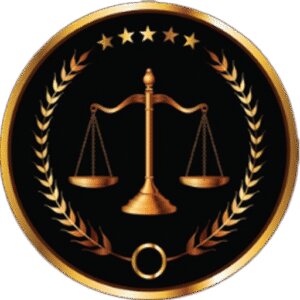Best Marriage Lawyers in Neuquén
Share your needs with us, get contacted by law firms.
Free. Takes 2 min.
Free Guide to Hiring a Family Lawyer
List of the best lawyers in Neuquén, Argentina
About Marriage Law in Neuquén, Argentina
Marriage in Neuquén is governed by a combination of national rules set out in the Civil and Commercial Code of Argentina and provincial procedures administered by the Registro Civil of the Province of Neuquén. Civil marriage is the legally recognized form of union that creates rights and obligations between spouses, including property rights, parental rights and succession rights. Religious ceremonies may be culturally significant but do not replace the need to register the marriage with the civil authorities in order for it to have legal effect.
Argentina recognizes marriages regardless of the sex of the partners - same-sex marriage has full legal status nationwide. People from other countries can generally marry in Neuquén if they meet the document and identity requirements established by civil registries. If you are planning to marry, separate, or resolve any family matter connected to marriage in Neuquén, it helps to understand both national law and the local procedures you will need to follow.
Why You May Need a Lawyer
Marriage can raise many legal issues where professional advice is valuable. Common reasons to seek a lawyer include:
- Drafting or reviewing a prenuptial agreement or marital property agreement - to define how assets and debts will be handled.
- Navigating separation or divorce - to clarify grounds, division of assets, spousal support, and the filing process.
- Resolving child matters - custody, visitation schedules, parental authority, child support and relocation issues.
- Protecting rights in cases of domestic violence - lawyers can help obtain protection orders and connect you to social services.
- Handling cross-border issues - recognition of foreign marriages, international child abduction, or spousal immigration matters.
- Inheritance and pension claims linked to marital status - ensuring succession rights or claiming survivor benefits.
- Registering a marriage or correcting civil registry records - for errors, name changes or recognition of previously celebrated unions.
Local Laws Overview
Key aspects to keep in mind when dealing with marriage-related matters in Neuquén include:
- Civil and Commercial Code of the Nation - Most substantive rules about marriage, divorce, parental rights and property regimes are set by the national Civil and Commercial Code, which applies throughout Argentina.
- Civil registration - Marriage must be entered in the Registro Civil of the place where the ceremony is celebrated or where one of the spouses resides. The Registro Civil de la Provincia de Neuquén administers local registrations and issues the official marriage certificate.
- Minimum age and authorizations - The general minimum age to marry is 18. Minors aged 16 to 18 may be able to marry with the required authorizations or judicial permission. Requirements can vary depending on the circumstances so verify with the local registry.
- Marital property regimes - Spouses may choose a property regime before marriage by executing a public deed known as capitulaciones matrimoniales. If no choice is made, the law sets a default regime. Because provincial practices and Registry requirements can vary, a legal professional can advise on the best option and the formalities required.
- Divorce - Argentine law allows for the dissolution of marriage by divorce. Processes and remedies for dividing assets, assigning spousal support and resolving child-related issues follow national rules but are implemented through provincial courts or appropriate administrative channels.
- Child protection and custody - Family courts in the province decide custody, parental authority and child support matters, always guided by the best interest of the child standard.
- Recognition of foreign documents - Documents issued abroad may require apostille, legalization and translation into Spanish before being accepted by local authorities.
Frequently Asked Questions
What documents do I need to get married in Neuquén?
Generally you will need valid identification (national ID or passport), a birth certificate, and proof of civil status (single, divorced or widowed). If you were previously married, you will need the divorce judgment or death certificate of the former spouse. Foreign documents often require apostille and Spanish translation. The Registro Civil in Neuquén will provide the exact checklist for your situation.
Can foreigners marry in Neuquén if they are not residents?
Yes, many provinces allow foreigners to marry without residency. You must present valid identity documents and any required certifications from your country of origin. Some documents may need apostille and official translation. Check with the local Registro Civil in Neuquén about specific documentary requirements and any waiting periods.
Do I need a prenuptial agreement and how do I make one valid?
A prenuptial agreement - called capitulaciones matrimoniales - is useful to define the property regime and protect individual assets and debts. In Argentina such agreements normally must be made before the marriage and executed as a public deed before a notary or public official. A lawyer can draft the document and ensure it complies with formalities so it will hold up in court.
What is the default property regime if we do not sign an agreement?
If spouses do not choose a property regime, the Civil and Commercial Code provides a default regime. The specifics and practical effects depend on the statutory rules and how assets were acquired. Because property regimes affect ownership, administration and division at separation, consult a lawyer to understand how the default regime applies to your situation.
How is divorce handled in Neuquén and how long does it take?
Divorce in Argentina is regulated at the national level but processed through provincial channels. There are judicial procedures and, in some cases, alternative administrative or consensual processes. Duration depends on whether the divorce is contested, whether the parties agree on asset division and child arrangements, and on the workload of the courts. A straightforward, uncontested divorce can be relatively quick; contested cases may take longer.
How are custody and child support decided after separation?
Family judges decide custody, parental authority and child support based on the best interest of the child. The court considers factors such as the child’s needs, parental capacities, stability and any history of violence or neglect. Child support calculations consider the child’s needs and the parents’ economic capacity. A lawyer or family mediator can help propose an agreement or represent you in court.
Can I change my name after marriage?
Argentine law does not require or automatically change surnames upon marriage. Social practice sometimes uses a spouse’s surname informally, but legally each person keeps their name unless they follow civil procedures for a change. If you want an official change, consult the Registro Civil about the proper process and documentation.
What happens to pensions and inheritance when spouses separate or die?
Marital status affects succession rights and potential pension benefits for surviving spouses. The rules depend on the pension system and succession law. Inheritance rights are governed by civil law and can be affected by the marital property regime. A lawyer can advise on succession planning, wills and steps to protect a spouse’s rights.
How are domestic violence or urgent protection matters addressed?
Neuquén has mechanisms to protect victims of domestic violence. You can request police intervention, file for protective measures or seek urgent judicial orders to prevent contact or remove an aggressor from the home. Public prosecutors, family courts and social services are involved in providing protection and support. If you are in immediate danger, contact emergency services and seek legal assistance right away.
Where can I register a marriage or obtain a copy of a marriage certificate?
Marriage registration and certificates are handled by the Registro Civil. In Neuquén you can request registration or official copies from the provincial civil registry office where the marriage was recorded. The Registro Civil will explain fees, ID requirements and any steps needed to correct or update records.
Additional Resources
Below are helpful institutions and organizations to contact for information or assistance - check their specific offices in Neuquén for local services:
- Registro Civil de la Provincia de Neuquén - for marriage registration, certificates and local procedural requirements.
- Registro Nacional de las Personas (RENAPER) - for national identity and documentation matters.
- Juzgados de Familia de la Provincia de Neuquén - family courts that handle custody, divorce and support cases.
- Colegio de Abogados de Neuquén - for lawyer referrals, professional guidance and information on legal aid.
- Defensoría Pública / Servicio Público de Defensa - for free or subsidized legal assistance if you qualify.
- Provincial agencies that address gender-based violence and family support services - for protection orders and social support.
- National Ministry of Justice and Human Rights - for information on national laws such as the Civil and Commercial Code and legal procedures.
Next Steps
If you need legal assistance related to marriage in Neuquén, consider the following practical steps:
- Gather your documents - collect identity documents, birth certificates, previous marriage or divorce documents, and any proof of residence or nationality.
- Contact the local Registro Civil - ask for the exact checklist and any waiting periods or special requirements for your case.
- Decide if you need a lawyer - consult a family law attorney if you are planning a prenuptial agreement, facing separation or divorce, dealing with custody issues, or if your case involves cross-border matters.
- Seek legal aid if you cannot afford a private lawyer - contact the Defensoría Pública or the Colegio de Abogados for information on public defense or low-cost legal services.
- Consider alternative dispute resolution - mediation or collaborative processes can be faster and less adversarial for divorce and custody arrangements.
- Act quickly in urgent situations - if there is violence or risk to you or your children, seek immediate protection from the police, family court or specialized support services.
When in doubt, consult a qualified local lawyer who can explain how national rules and provincial procedures apply to your individual circumstances in Neuquén. Clear information and early legal advice help protect your rights and reduce surprises during major life events connected to marriage.
Lawzana helps you find the best lawyers and law firms in Neuquén through a curated and pre-screened list of qualified legal professionals. Our platform offers rankings and detailed profiles of attorneys and law firms, allowing you to compare based on practice areas, including Marriage, experience, and client feedback.
Each profile includes a description of the firm's areas of practice, client reviews, team members and partners, year of establishment, spoken languages, office locations, contact information, social media presence, and any published articles or resources. Most firms on our platform speak English and are experienced in both local and international legal matters.
Get a quote from top-rated law firms in Neuquén, Argentina — quickly, securely, and without unnecessary hassle.
Disclaimer:
The information provided on this page is for general informational purposes only and does not constitute legal advice. While we strive to ensure the accuracy and relevance of the content, legal information may change over time, and interpretations of the law can vary. You should always consult with a qualified legal professional for advice specific to your situation.
We disclaim all liability for actions taken or not taken based on the content of this page. If you believe any information is incorrect or outdated, please contact us, and we will review and update it where appropriate.









